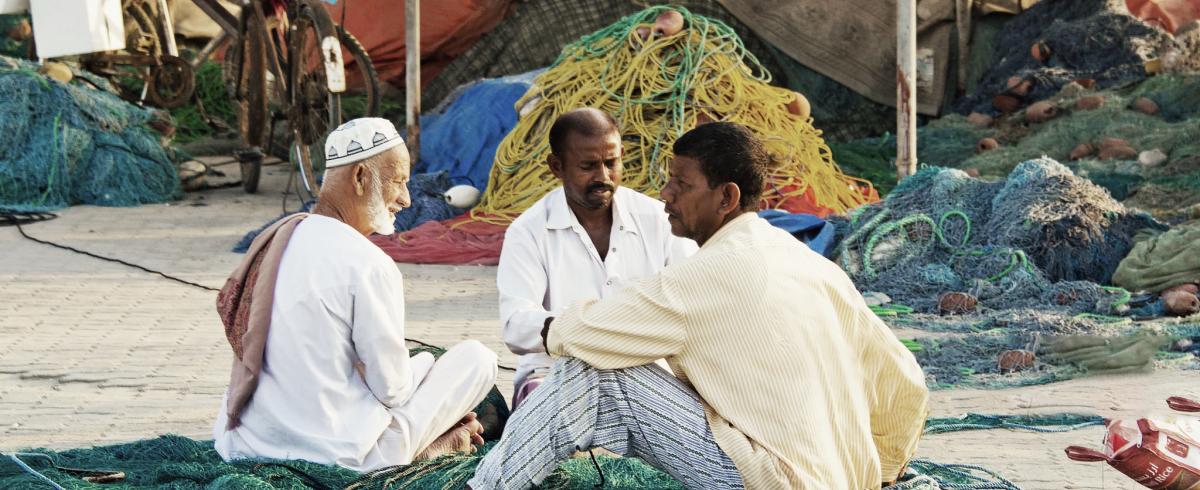
Categories to Explore
Welcome to the Resource Library. Here you will find a range of resources that you can use to support your small-scale fishery and community. Use the buttons above to browse resources by category or use the filters on the right to sort resources.
Processing sea cucumbers into beche-de-mer: A manual for Pacific Island fishers
This manual is designed for sea cucumber fishers in Pacific Islands. The species depicted in this manual are ones commonly fished in Pacific Islands.
Local management of marine resources - A guide for communities in Kenya and mainland Tanzania
This guide, available in both English and Kiswahili, has been designed to provide guidance to community members and resource users who wish to manage their own natural resources by developing a strategy for local management of their coastal area and marine resources. It is meant not as a comprehensive, step-by-step guide, but rather as an introduction to the important ideas and processes involved in establishing local management. The guide provides some links where those interested can find out further information or can request support and practical assistance.
Fish handling, quality and processing: training and community trainers manual
This manual has been produced to help introduce better practices that can help people make more from the fish they catch, process and sell, as well as help them reduce post-harvest losses.
Marine tenure and small-scale fisheries - A priority for development programming
The following information brief provides an overview on the topic of marine tenure in securing sustainable small-scale fisheries and its role in meeting global development objectives.
Taking stock of the Voluntary Guidelines on Securing Sustainable Small-scale Fisheries — Development and testing of a country-level assessment tool
The SSF Guidelines detail a rich, multisectoral compilation of good practices for a wide range of stakeholders to be aware of and to adopt to secure sustainable small-scale fisheries for food security and poverty eradication. As such the Tool is designed to raise awareness of these good practices and to support a country-level assessment of status of implementation to inform programming and project design.
Unveiling women's roles and inclusion in Mexican small-scale fisheries (SSF)
The contributions of women to fisheries are often invisible, ignored, and unrecognized even though they represent 47% of the global fisheries workforce, especially in pre- and post-production activities. Poor data systems lead to incorrect assumptions about the gender division of labor in fisheries. This causes the role of women in fisheries to be overlooked. To evaluate the contribution of women in the value chain, a participatory methodology was implemented in three small-scale, fisheries in Mexico: California spiny lobster (Panulirus interruptus) fishery from the northern Mexican Pacific, penshell (Atrina maura) fishery from the Gulf of California, and Caribbean spiny lobster (Panulirus argus) fishery from the Mesoamerican Reef region.
Manual para implementar el Programa de Liderazgo Comunitario
Este manual sistematiza las fases del programa de liderazgo comunitario a lo largo de dos generaciones (2013-2019). El tejido social y la preservación del medio ambiente son factores indivisibles si se quiere trabajar en aras de la sostenibilidad. De este modo, quienes lideran han vivido momentos clave de crecimiento personal, que se han plasmado en el desarrollo de iniciativas comunitarias basadas en el bien común, la inclusión, la diversidad y la igualdad de género
Women's empowerment, collective actions, and sustainable fisheries: lessons from Mexico
Collective action is recognized as a key element to successfully implementing sustainable fisheries. Nevertheless, gender equality, as an essential component in such actions, is often missing. In fisheries, women’s contributions are regularly invisible and remain unrepresented in statistics. In this paper, we examine the current status of women in Mexican fisheries based on governmental reports and programs, as well as five case studies from small-scale fishing communities.
Marine Tenure and Small-Scale Fisheries: Learning from the Indonesia Experience
The Indonesia field assessment, conducted from February 19 to March 3, 2017, contributed inputs to an overall strategy on marine tenure that will support the USAID SEA project’s goal to improve the management and sustainability of small-scale fisheries.
Social protection in small-scale fisheries and aquaculture in Latin America and the Caribbean
Taking into account the economic importance of this sector for small-scale producers, as well as its high degree of vulnerability, the aim of this report is to give an overview of the current state of social protection and challenges facing small-scale fishers and fish farmers in Latin America and the Caribbean. It analyses the social protection needs of this population segment, the main social protection programs in the region, and proposes a roadmap with public policy recommendations to promote adequate social protection.
